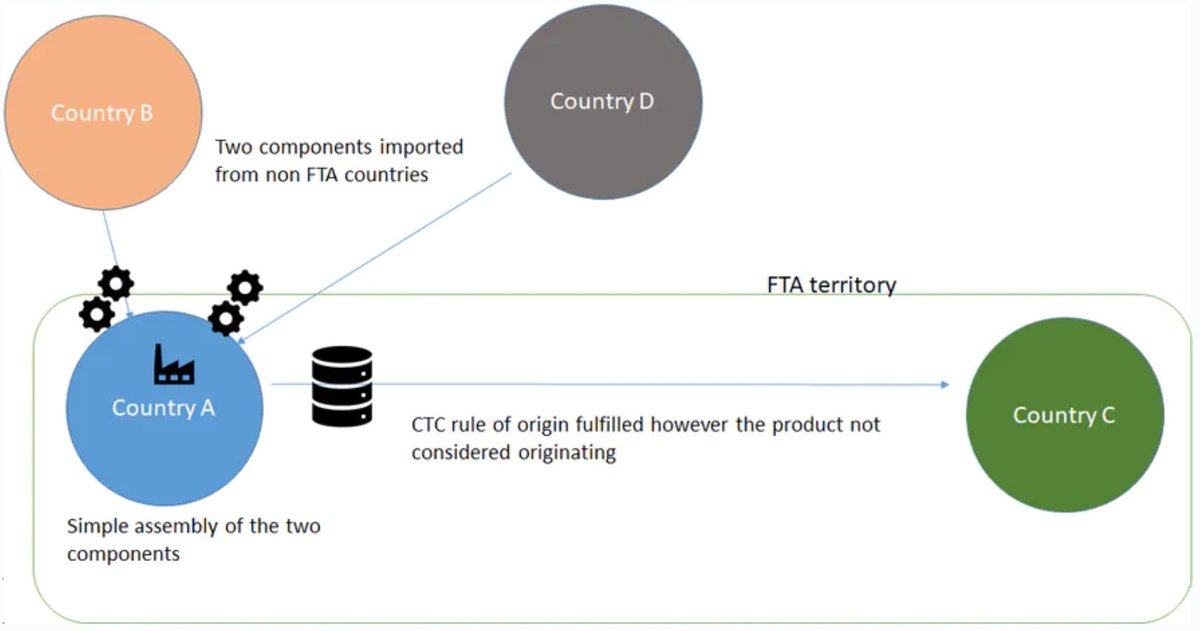So some of the standard RoO provisions will seem incredibly restrictive under the UK-EU deal.
/2
\U0001f6a8\U0001f6a8\U0001f6a8\U0001f1ea\U0001f1fa\U0001f1ec\U0001f1e7\U0001f69b\U0001f692\U0001f1ea\U0001f1fa\U0001f1ec\U0001f1e7\U0001f6a8\U0001f6a8\U0001f6a8 serious #brexit story alert - companies now starting to see penny drop on what rules of origin does to supply chains (food for example) but Brussels seems deaf to both EU & U.K. pleading. A bellwether? \U0001f62c Stay with me. 1/
— Peter Foster (@pmdfoster) January 6, 2021
https://t.co/HoDSDxhKaL
NEW: Extraordinary examples just published by Govt re what will NOT qualify for tariff free trade under UK-EU FTA from Friday as result of \u201crules of origin\u201d... specialist considerations as to the
— Faisal Islam (@faisalislam) December 29, 2020
1. Grating of cheese
2. Shelling of nuts
3. Assembly of a table
4. Eyes of a doll pic.twitter.com/zOi8COttDJ

Both the @ChathamHouse and @Policy_Exchange reports are excellent and leave a healthy tension to the UK foreign policy debate. I\u2019m left with two questions that won\u2019t go away. Is the first underestimating how the world has changed. Is the second overestimating Britain\u2019s capacity?
— Ben Judah (@b_judah) January 11, 2021